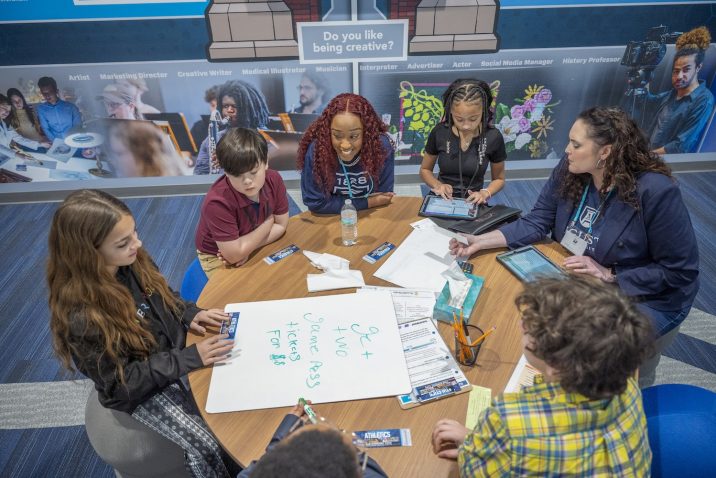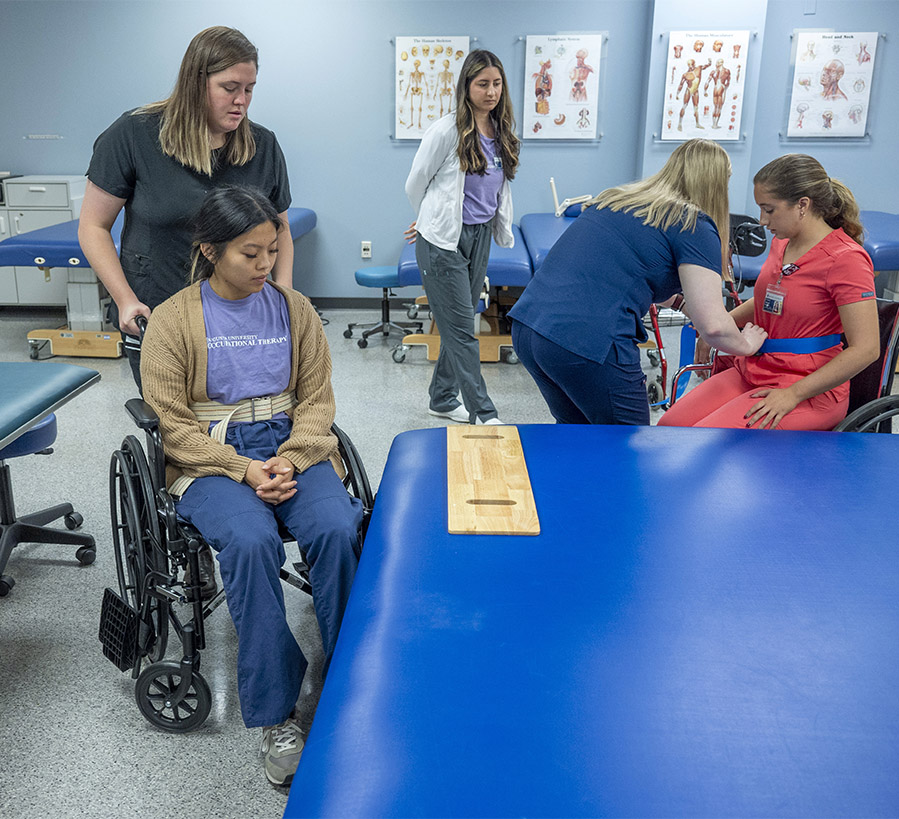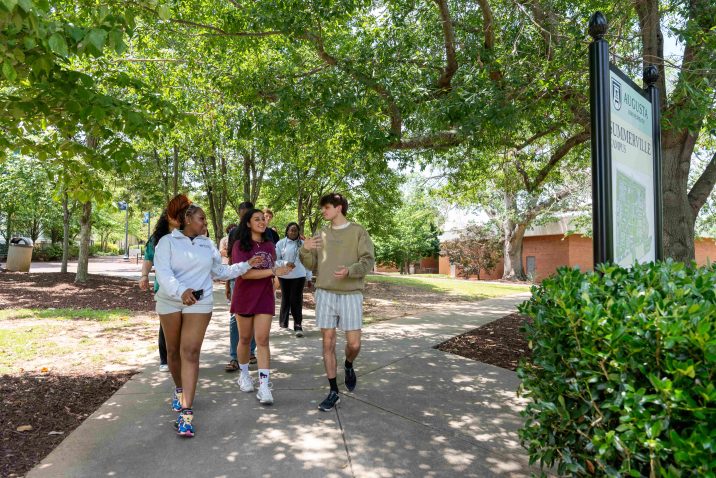Occupational Therapy
As an occupational therapist, you’ll make an impact on patients with a wide variety of injuries, illnesses and disabilities, helping them fully engage in their daily lives through the development of everyday skills.
Occupational therapists work with clients, families and populations to promote positive
health outcomes that improve lives and create supportive environments.
By choosing to earn your Master of Health Science in Occupational Therapy from Augusta University’s College of Allied Health Sciences, you’ll be part of the
oldest occupational therapy program in Georgia, joining a 50-plus year tradition of
graduating top-level occupational therapists that have gone on to serve with distinction
in Georgia and beyond.
One of the best aspects of our master’s degree is that you do not have to complete
a bachelor’s degree to enter our Program; you can enter with just 90 undergraduate
credit hours. This is a great option for those students who want to pursue their entry-level
degree on a fast track!
Occupational Therapy is for you if you consider yourself
Life-Changing
Life-Saving
Education
Want to learn more about the Occupational Therapy program at Augusta University?
Request InfoWhat You'll Study
Coursework
Students in Augusta University’s Master of Health Science in Occupational Therapy program will complete six semesters, totaling 89 credit hours. This includes six Level I fieldwork experiences and two 12-week Level II fieldwork rotations at nationwide sites.
After successfully completing the program, graduates are eligible to sit for the National Board for Certification in Occupational Therapy examination
Curriculum | Admissions Criteria | Tuition and Fees | Application Deadlines
Experience-based Education
Outside the Classroom
Occupational therapy students learn through doing, and several service and fieldwork opportunities exist right here in our own community, including (but not limited to):
- Steps of Grace: A dance program developed for children with developmental differences.
- Camp TBI: A weeklong, overnight camp for campers with traumatic brain injury.
- Camp I.V.E.Y.: A weeklong camp for children with developmental delays.
- Project Refresh: A mobile shower program serving persons who are experiencing homelessness.
-
Study Abroad opportunities working within communities in Jamaica or Rwanda.
Accredited Program
Accredited by the Accreditation Council for Occupational Therapy Education, 7501 Wisconsin Avenue, Suite 510E, Bethesda, MD 20814. Telephone: (301) 652-2682.
Certification Achievement
Augusta University results for the National Board for Certification in Occupational Therapy (NBCOT), which must be passed in order to become licensed to practice in the state of Georgia, are among the best in the country.
Rich History
Established at the Medical College of Georgia in 1971, Augusta University’s occupational therapy program is the oldest in Georgia.
Accomplished Faculty
Occupational therapy faculty are recognized educators, researchers and clinical experts who are committed to providing innovative opportunities for student learning and professional growth.
Your Future
Career Options
According to the U.S. Bureau of Labor Statistics, job growth for occupational therapists is projected to rise much faster than average.
With a Master's in Occupational Therapy, you're positioned for a fulfilling career with ample job opportunities, good growth potential, and the chance to make a significant difference in people's lives by helping them regain independence and improve their overall well-being.
Admissions Criteria at a Glance
GPA: Overall GPA of at least 3.0 on a 4.0 scale on all previous college work, with a minimum average of 2.8 on math and science courses.
Degree Requirement: Prior to enrollment, the applicant must have completed a minimum of 90 prerequisite hours at an accredited college. Applicants do not need to complete a baccalaureate degree prior to admission into the program.
Transcripts: Official transcripts are required from all universities and colleges ever attended. Unofficial transcripts from US colleges and universities can be used in the admissions review process in lieu of official transcripts for this program.
Standardized Test Requirements: A minimum GRE score of 290 combined (2011 and later) or 900 (on earlier versions). A score of 3.5 or above is required on the writing session.
Letters of Recommendation: Recommendations from three individuals must be submitted through the application portal.
International Students: Please review the verification process for international transcripts and the English proficiency requirement.
Tuition & Fees Estimate
$5,951*
Estimated total
Full-time / In-State / Per Semester
$496
Tuition Per Hour
$675
Mandatory Fees
View Detailed Program Tuition
*Tuition & Fees listed here are for in-state students enrolling in the university for Fall 2025 semester.
Detailed Program Tuition InformationApplication Deadlines
Summer 2025 Admissions Cycle
- July 1 - October 1, 2024
Early submission of all application materials is strongly advised.
Applications are reviewed in the order that they become complete. Applications are considered complete when all supporting materials (transcripts, letters of recommendation, and test scores) have been received and processed by Admissions, which can take several weeks. It is the applicant's responsibility to ensure the materials arrive in time to be processed.
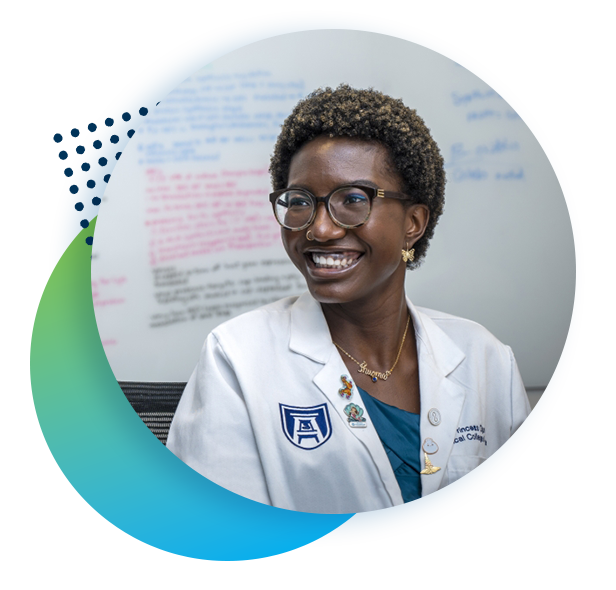
Why Augusta?
An established program with celebrated faculty means you’re prepared for the challenges of whatever work environment you choose.
As one of Georgia’s four research universities, Augusta University provides unparalleled opportunities for research and scholarship, with state-of-the-art labs and equipment.
An emphasis on fieldwork exposes you to real-world environments that can vault you to the top of the job market.
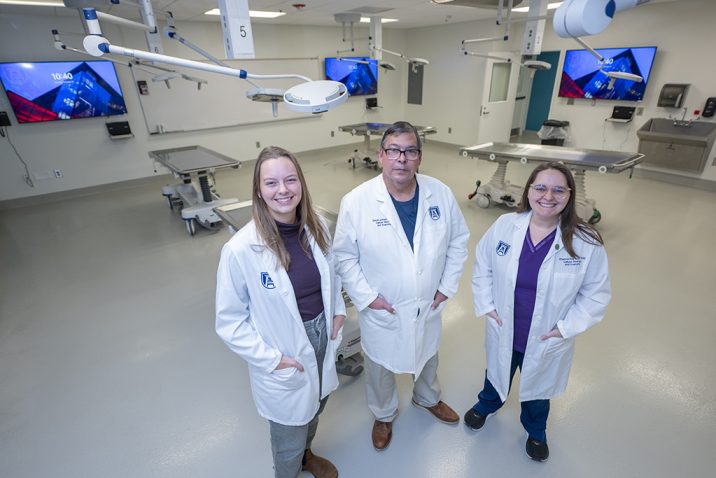
Families leave lasting contribution to medical science with body donations
Families leave lasting contribution to medical science with body donations